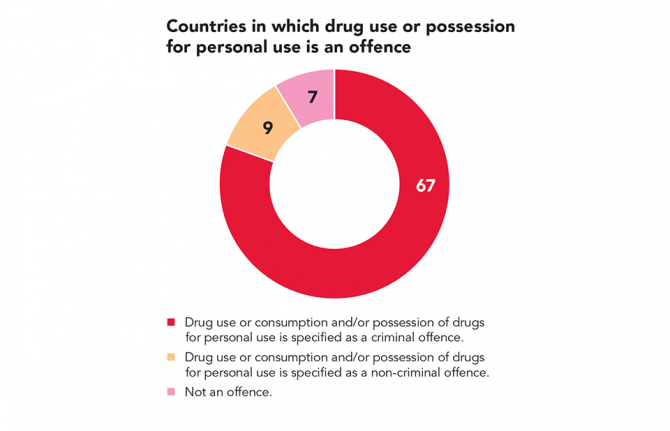

Update
Decriminalization works, but too few countries are taking the bold step
03 March 2020
03 March 2020 03 March 2020With the United Nations Commission on Narcotic Drugs meeting this week in Vienna, Austria, diplomatic attention is once again being given to drugs. In 2018, people who inject drugs accounted for 12% of worldwide new HIV infections.
Laws that criminalize key populations or discriminate against people living with HIV undermine efforts to prevent new HIV infections and AIDS-related deaths in dozens of countries across all regions. Decriminalization of drug use and possession for personal use reduces the stigma and discrimination that hampers access to health care, harm reduction and legal services. In countries where drug use is decriminalized and comprehensive harm reduction is available, HIV prevalence and transmission tend to drop sharply among people who use drugs.
Czechia, the Netherlands, Portugal and Switzerland are among a handful of countries that have decriminalized drug use and possession for personal use and that have also invested in harm reduction programmes. Consequently, diagnoses among people who inject drugs in those countries are low.
With drug use or consumption and/or possession of drugs for personal use a criminal offence in at least 67 countries, it’s time for countries to take the bold step towards decriminalization.



